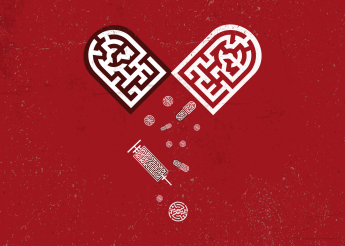DOTW. For Doctors of the World, harm reduction is a highly valued approach. We have worked toward this extensively on the outside, and we are concerned with these issues inside prison facilities. Unfortunately, there are no such measures in place within the Nantes prison. The law relating to modernising the health care system has reaffirmed the value of harm reduction in prisons, but for now there is no requirement for implementation. As a result, there is nothing in place either in the Nantes prison or at the national level.
Any existing harm reduction measures within prison walls are the result of professional risk-taking. Such initiatives may come from doctors in the health unit who, for example, write syringe prescriptions so that a prisoner is not punished if injection equipment is found in their cell. The CSAPA and CAARUD can provide this type of equipment. In these cases, let’s be clear that the prison administration has collaborated on the initiative. While it is encouraging to see that people are setting up such measures, unfortunately there is no systemisation. The day the doctor giving out syringes retires, the whole system stops. This really raises the question of how sustainable these initiatives are.
We organised the visit of the Nantes facility’s director to the Champ-Dollon prison in Switzerland, where harm reduction practices are well established. We wanted to show him that the system works and that there are no insurmountable obstacles to its implementation. We also wanted to make him aware that it does not only benefit the prisoners.
In Champ-Dollon it was the wardens themselves who launched this initiative, with the aim of avoiding their own risk of infection in case of contact with material.
Harm reduction is often a source of stigma. We would like to help the teams at Nantes implement this practice inside the prison, but in the proper way. We think the initial focus should not be on needle exchange, which is a sensitive topic. There are other ways to practice harm reduction, and risks are not limited to those surrounding substance injection. We can also address sexual health, tattoos, piercings…. In Nantes, the distribution of condoms in prison is non-existent, despite being provided for by law.
In France, the only existing measure inside prison facilities is the distribution of bleach in the kit given to incoming prisoners. This is absolutely not sufficient. The bleach is diluted to 12° to limit the risks of intoxication and suicide by ingestion. There is no proof that such a low concentration can properly disinfect anything.





